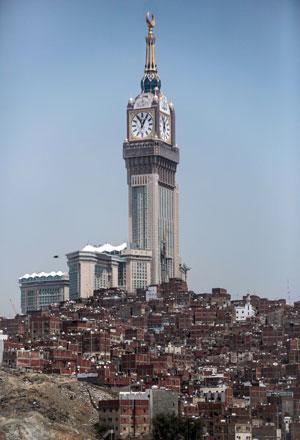You are here
Saudi Arabia projects huge deficit as oil price drop bites
By AFP - Dec 27,2014 - Last updated at Dec 27,2014

RIYADH — Saudi Arabia announced a 2015 budget with a huge deficit at the weekend as the world's largest crude exporter begins to feel the impact of its own decision not to shore up oil prices.
The government announced the $38.6 billion deficit on state-run television, saying it would nonetheless boost projected spending by tapping its vast financial reserves.
The lead producer in the Organisation of the Petroleum Exporting Countries (OPEC), Saudi Arabia has insisted the group will not move to strengthen global oil prices despite a drop of nearly 50 per cent since June.
OPEC has maintained a production ceiling of 30 million barrels per day, in a move analysts say is aimed at stifling competition from new market players with higher costs, in particular North American shale oil producers.
Saudi officials have vowed not to boost production no matter how low prices go, regardless of the impact on the country's coffers.
The budget announced for next year sees spending at 860 billion riyals ($229.3 billion) and revenues at 715 billion riyals ($190.7 billion).
Projected spending is slightly higher than planned for this year, but revenues are 140 billion riyals lower than estimates for 2014, said the statement read after a Cabinet session chaired by Crown Prince Salman Bin Abdul Aziz.
The 2015 budget shortfall is the first deficit projected by the OPEC kingpin since 2011 and the largest ever for the kingdom.
Finance Minister Ibrahim Al Assaf said the kingdom was in good enough shape to see out the downturn.
"The challenge was bigger than expected. We continued to revise the budget figures as oil prices dived," Assaf told Saudi TV. "Despite the deficit, we will continue to spend on development projects... We have the buffers to bear the drop."
Assaf said everyone agreed oil would rebound and that it was only a question of when.
In the past decade, Saudi Arabia overspent budget projections by more than 20 per cent and if the trend is maintained next year, analysts say the deficit will be much higher.
"I believe we are headed for a difficult year in 2015. I think the actual deficit will be around 200 billion riyals because actual revenues are expected to be lower than estimates," Saudi economist Abdul Wahab Abu-Dahesh said.
"Spending in the budget is not in line with the sharp decline in oil prices," he added.
The finance ministry also announced the 2014 preliminary actual budget figures, saying it expects a deficit of 54 billion riyals, the first shortfall since 2009.
Highest spending
in history
The ministry said that, according to the preliminary figures, revenues in 2014 were at $278.9 billion, 22 per cent higher than projected.
But spending was at $293.3 billion, the highest in the kingdom's history and about $33 billion more than expenditures in 2013.
The rise was due to huge expansion projects at Muslim holy sites in Mecca and Medina, an increase in spending on development and foreign aid.
The price of oil, which makes up around 90 per cent of public income in Saudi Arabia, has lost about half of its value since June due to a production glut, weak global demand and a stronger US dollar.
In royal decrees issuing the budget, King Abdullah called for "rationalisation of spending" and for the "accurate and efficient implementation of the budget" in 2015.
If oil prices remain at the current level of about $60 a barrel for benchmark Brent crude, Saudi Arabia is expected to lose half of its oil revenues of $276 billion posted in 2013. Oil income this year is expected at $248 billion.
But the wealthy kingdom, which pumps about 9.6 million barrels per day, can easily tap into huge fiscal buffers, estimated at $750 billion, to meet the deficit.
King Abdullah authorised the finance minister to draw from the reserves or to borrow to meet the deficit.
Ratings agency Standard and Poor's lowered its outlook for Saudi Arabia to stable from positive following the oil price slide.
But it also affirmed its high ratings for Riyadh over the "strong external and fiscal positions" it has built up in the past decade.
Related Articles
DUBAI — Saudi Arabia's planned cuts in spending and energy subsidies signal that the world's largest crude exporter is bracing for a pr
Plunging oil prices could mean the first budget cuts for major exporter Saudi Arabia since 2002 but they are not expected to be large enough to stop growth in the Arab world's biggest economy.
Billionaire Prince Alwaleed Bin Talal has lashed out at the Saudi fiscal policy after projecting the largest ever budget deficit for 2015 following the slump in oil prices.

















